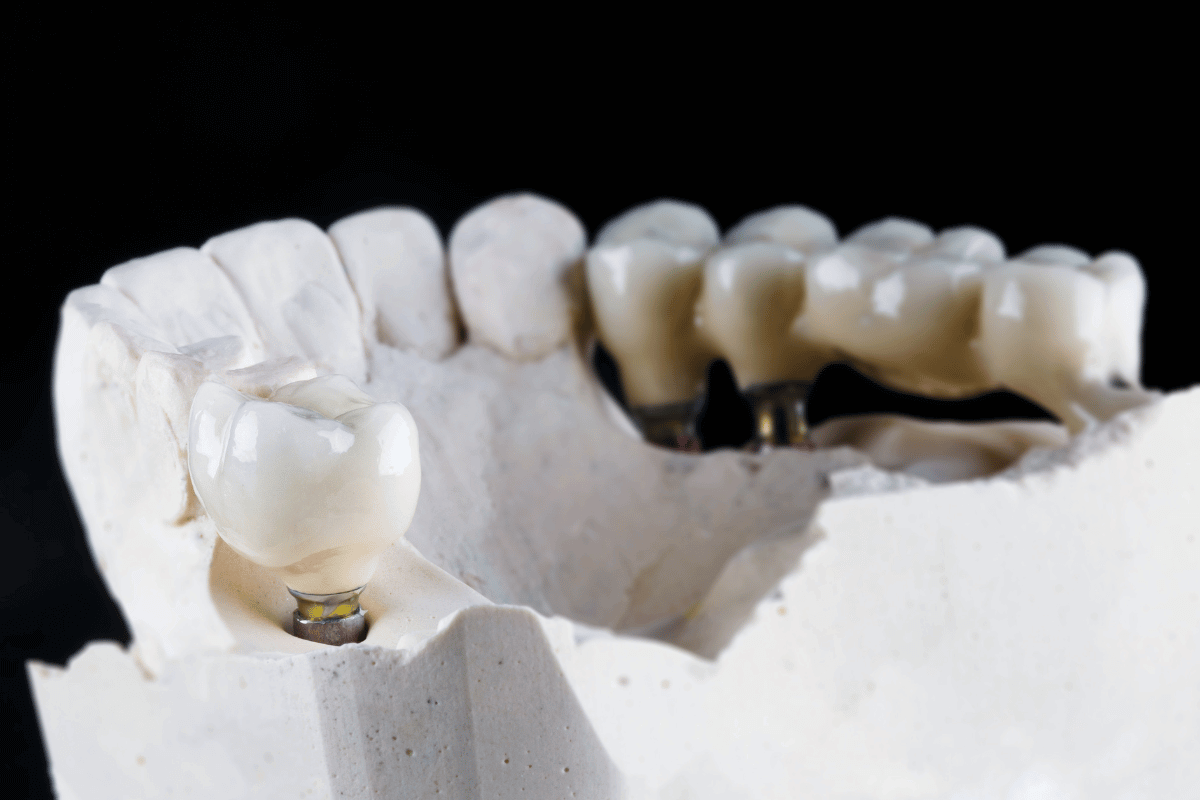
Last week, on Friday, I was finally preparing to leave for home after a hectic week with many appointments, when my team notified me that there is one more walk in patient, can I please talk to them? At Local Dental Clinic, we won’t turn someone away when they need our guidance.
Vanessa started by asking me a very on-point question: if I go for dental crowns, how long are they going to last? A very direct but valid question. We discussed crowns in detail and Vanessa decided to go ahead, and this she’s with us for her treatment. Now, you might be wondering why I’m sharing this with you. I realised that this is the question many of my patients ask me when they’re thinking about dental crowns. So, why not make this answer public to let people know all about crowns.
What are Dental Crowns?
Dental crowns are custom-designed tooth caps that are fitted on top of broken or decayed teeth. When the crowns are placed on top of the tooth, they restore its look, shape, size, and strength. Dental crowns can be made of many materials, but they primarily consist of porcelain, ceramic, metal, or a combination of these. Crowns give your teeth the needed support and protection to save them from further damage or decay.
Do Dental Crowns Last a Lifetime?
It’s very important to mention that any dental fitting or treatment has a lifespan. Nothing is permanent. How long they last actually depend on you and the way you take care of them.
What is the Typical Life of a Dental Crown?
A well-designed and properly installed dental crown should stay with you for between 5 to 15 years, and sometimes more than that. But, again it's on you as to how you maintain them. There are many factors can influence the life of a dental crown.
So, let's have a look at these:
What Affects The Life of Dental Crown?
While there is no definite answer to the longevity of a dental crown, a lot depends on choosing the right material, practising proper dental hygiene, and avoiding things that reduce the lifespan of dental crowns.
Here are the key factors affecting the life of a dental crown:
1. Material Used:
The life of your dental crown depends on the material you choose to have your crown made from, as each option has its own positives and negatives.
Metal Crowns:
- Gold or silver alloys are used due to their superior strength and long-term use.
- Can be resistant to wear and breakage, hence preferred for posterior teeth.
Porcelain Crowns:
- Look like natural teeth.
- More protection against chipping and fracturing compared to metal crowns.
PFM (Porcelain fused to Metal) Crowns:
- Combine a strong metal sub-structure, while the outer layer of porcelain gives it its natural look.
Zirconia Crowns:
- While they are popular for strength and durability, they are the most appropriate options for anterior and posterior teeth.
- Zirconia crowns excellent aesthetics and high resistance to fracture or damage.
2. Build Quality of Dental Crown:
Beyond material, the lifespan of a dental crown largely depends on the way it has been measured and built.
- Ensures the right fit and accurate alignment with adjacent teeth
- Avoids problems like overhanging margins or uneven bite.
3. Selecting the Right Dental Practitioner:
With a good and sturdy material and a perfect quality build, you also need to make sure that the experienced hands of a professional dentist fit your dental crowns.
- Highly skilled and experienced dental professionals ensure that it fits exactly in your mouth and stays there for a long time.
- They keep in mind all your specifications and unique requirements.
- They know the right method and technologies for the best possible outcome.
4. Location of Tooth:
The life of a dental crown also depends on where they are located in your mouth.
Biting Forces:
- If the crown is on your posterior (back) teeth, it may have higher biting forces while chewing and grinding your food that can reduce the life of the crown.
- If it’s been fitted on molars and premolars, the chances of wear and tear go up.
Cleaning Accessibility:
- The back molars present cleaning challenges that may contribute to the deterioration of the crown.
- General oral hygiene, such as decay or gum disease, will also reduce the life of crown.
- Circular brushing techniques and a good quality brush with soft bristles will keep your crown clean and safe.
5. Bruxism (Teeth Grinding):
If you suffer from teeth grinding issues, this may cause a problem for your dental crowns. However with the right solution you can keep your crowns stronger for longer.
Mouth Guard:
- Wearing a customised mouth guard overnight while sleeping lets you protect the dental crowns from the impacts of grinding.
- Specially built mouth guards give your crown protection against repetitive grinding motions.
6. Dietary Habits:
On top of all these factors, your diet plays a crucial role in the life of your dental crowns.
Hard foods & chewing instruments:
Things such as ice, hard nuts, candy, seeds, pens or finger nails can cause crowns to chip or fracture if taken in excess.
Sticky Foods:
Sticky foods can pull down on your crown, ultimately loosening up their fittings in comparison to soft food items that are less stress producing on the tooth structure.
Smoking and Tobacco Use:
Smoking or tobacco chewing leads to losing bone structure and density, which also loosen the crown. But, even before that happens it also deteriorates the colour of your crown which may ultimately lead to you wanting to it.
I hope everything discussed above has added some clarity about dental crowns and their longevity. If I were to try and put it in a single statement, it would be:
The life of dental crowns is mostly in your hands, based on your diet, care and dental hygiene habits
If there’s something that I haven’t answered or you still have questions, we welcome you to come in to your nearby Local Dental Clinic in Deniliquin or Finley to speak to one of our expert dental practitioners.
Go Back

















